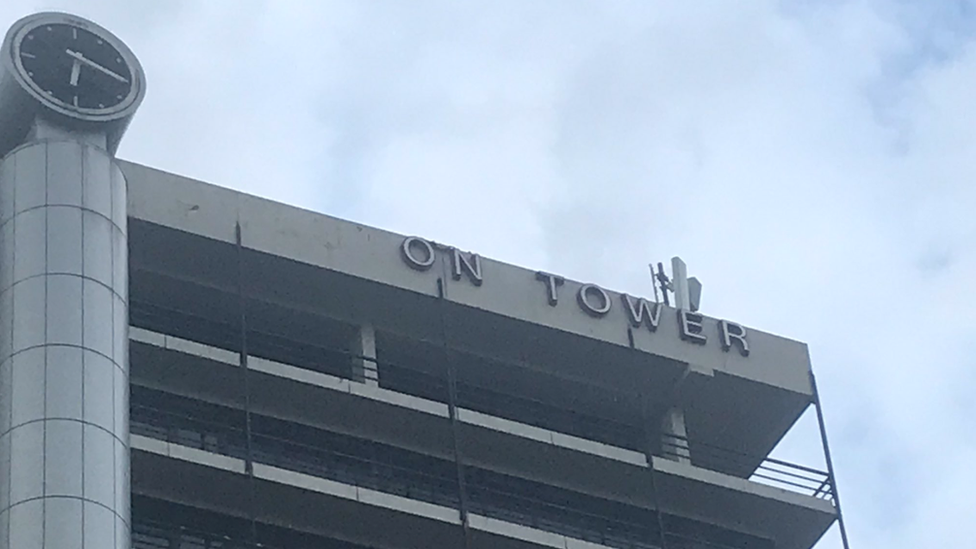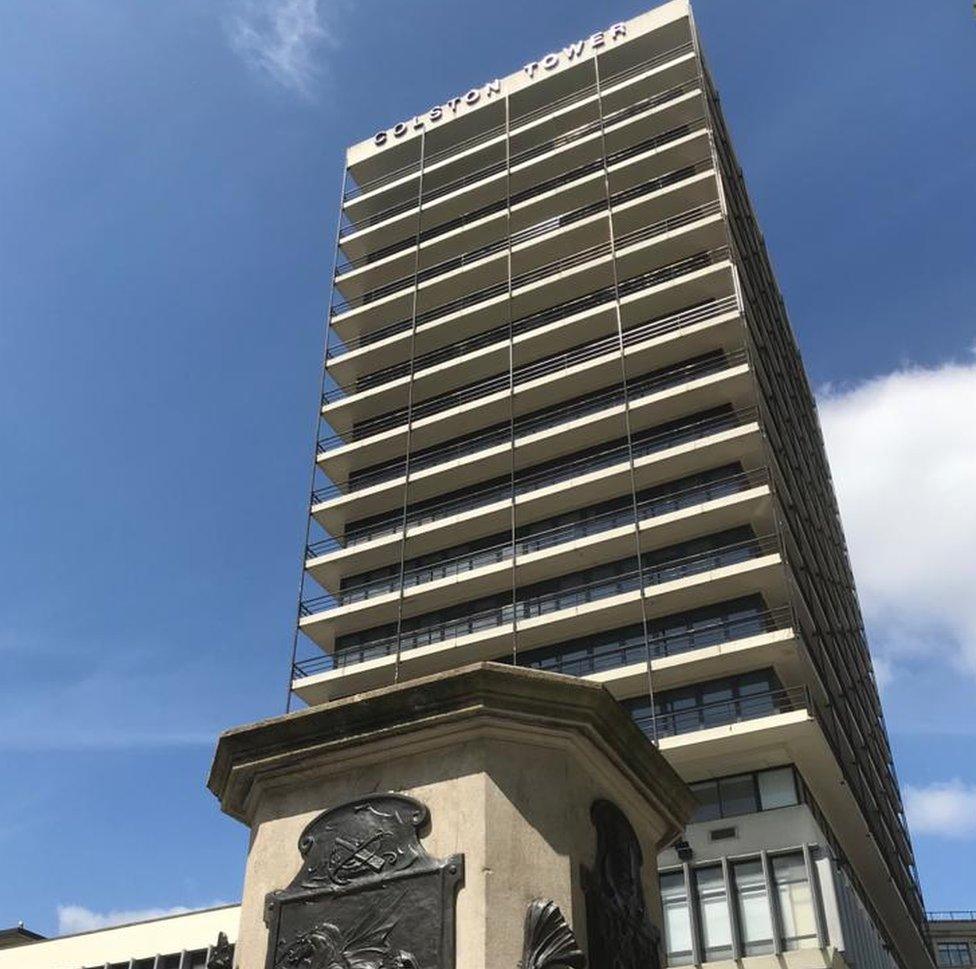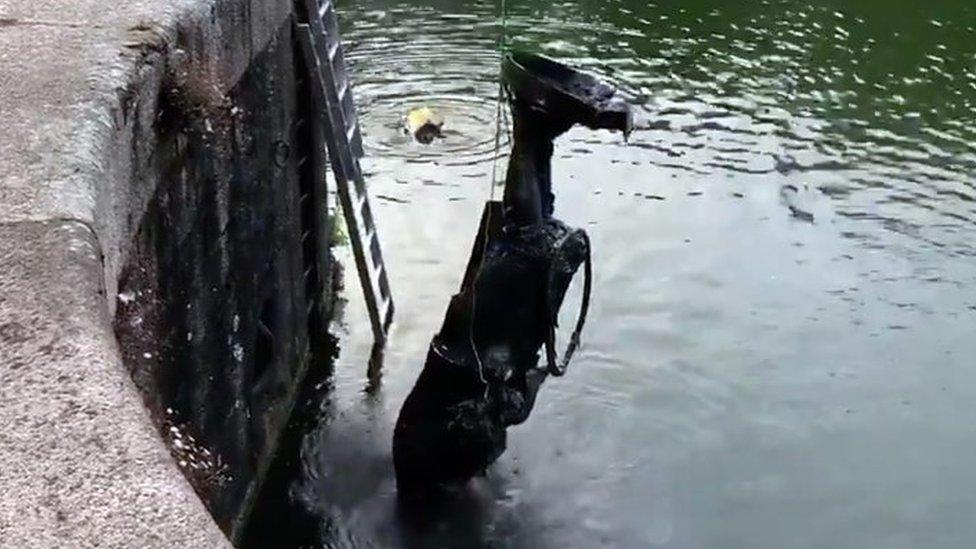Edward Colston: Slave trader's name removed from Bristol tower
- Published

A new name for the office block will be voted on by tenants
A sign bearing the name of slave trader Edward Colston is being removed from the top of an office block in Bristol City Centre.
Colston Tower is close to the site where protesters pulled down a statue of the merchant during a Black Lives Matter demonstration on Sunday.
An email to tenants seen by the BBC says the metal letters were being removed for security reasons.
It goes on to state a new name for the tower would be agreed with its tenants.
The building's owners said all signage would be removed from 15:00 BST "to reduce and remove any immediate security threat to the building".
Since Colston's statue was toppled and thrown into Bristol's harbour, the city has begun to examine its links with the slave trade.
The statue, which was raised from the waters in the early hours of Thursday, has been moved to a secure location while its future is decided.
Mayor Marvin Rees has said decisions on a replacement to occupy the statue's empty plinth would be made through consultation.
The city council has also said it will set up a commission of historians and other experts to research the city's "true history" including the impact of "wars, protests, slavery and freedom".
Mr Rees said: "Once we have that knowledge as a city, and we're better informed about ourselves - then we can make a decision about how we want to go forward."

Colston Tower is close to the statue of Edward Colston which was torn down on Sunday

On his death in 1721, Colston bequeathed his wealth to charities in the city. As a result, many of the city's street names and landmarks bear his name.
Debate over proposals to rename city landmarks has been reignited by the wave of protests launched in the wake of George Floyd's death in the US.
Colston Hall, an arts venue in the city centre, plans to change its name later this year.
References to the city's slavery links remain elsewhere, including Exchange Hall, where slaves were bought and sold, and Guinea Street.
- Published11 June 2020
